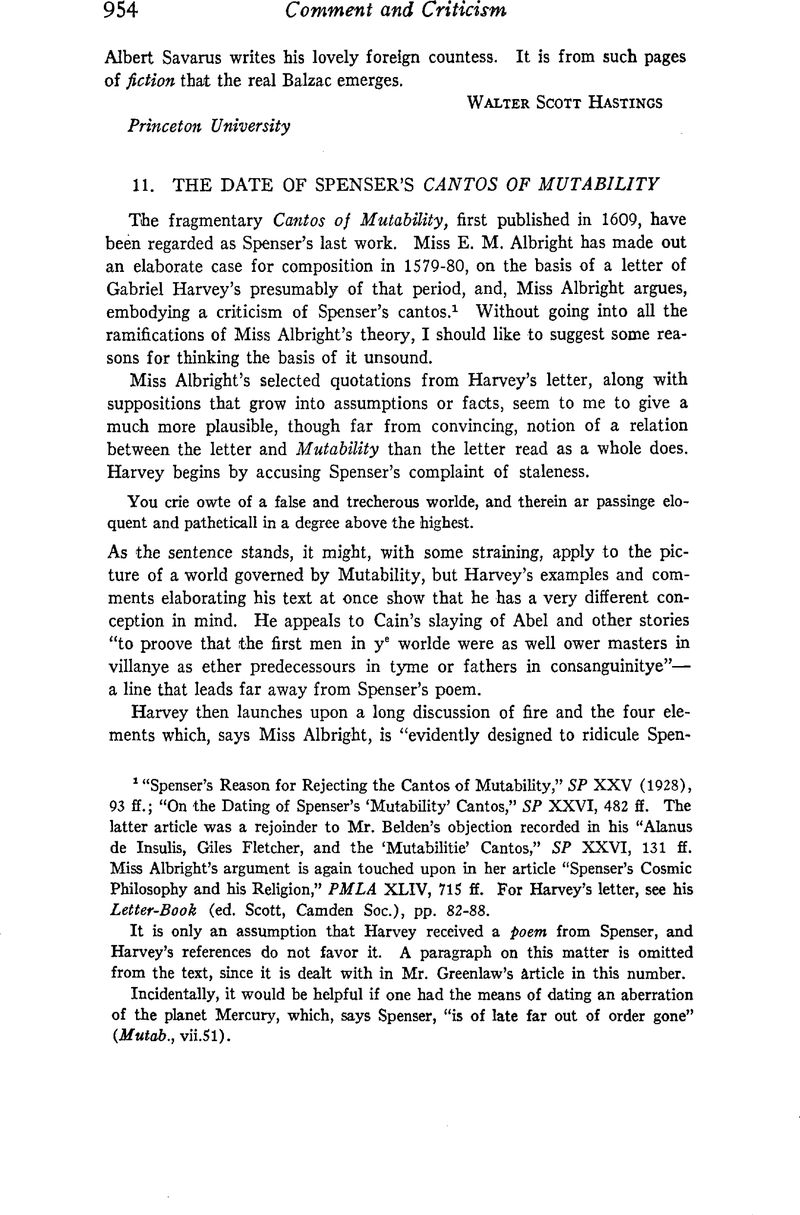No CrossRef data available.
Published online by Cambridge University Press: 02 December 2020

1 “Spenser's Reason for Rejecting the Cantos of Mutability,” SP XXV (1928), 93 ff.; “On the Dating of Spenser's ‘Mutability’ Cantos,” SP XXVI, 482 ff. The latter article was a rejoinder to Mr. Belden's objection recorded in his “Alanus de Insulis, Giles Fletcher, and the ‘Mutabilitie’ Cantos,” SP XXVI, 131 ff. Miss Albright's argument is again touched upon in her article “Spenser's Cosmic Philosophy and his Religion,” PMLA XLIV, 715 ff. For Harvey's letter, see his Letter-Book (ed. Scott, Camden Soc.), pp. 82-88.
It is only an assumption that Harvey received a poem from Spenser, and Harvey's references do not favor it. A paragraph on this matter is omitted from the text, since it is dealt with in Mr. Greenlaw's article in this number.
Incidentally, it would be helpful if one had the means of dating an aberration of the planet Mercury, which, says Spenser, “is of late far out of order gone” (Mutab., vii.51).
2 To mention another detail, Miss Albright (PMLA XLIV, 717) speaks of Castiglione as one of a number of “new influences” which appear in the later hymns. But it has long been recognized that the chief influence of Castiglione appears in the early hymns, and Mr. R. W. Lee (PQ VII, 65 ff.) showed clearly Spenser's close dependence upon the Courtier in those poems. Mr. Lee quite properly neglects the later hymns in his study, because they “contain a Christian Platonism essentially different from the Renaissance Platonism presented in the Courtier and in the early hymns; and although, in all probability, echoes of Bembo's loftiest sentiments are present in the closing stanzas of the late hymns, the language there is also the common language of Christian mysticism, with some of which Spenser may have been familiar.”